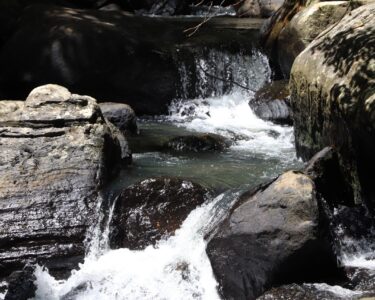Floods in Sri Lanka aren’t just rising with alarming frequency; so too is the chilling prospect of encountering a lurking crocodile. Climate change, bringing torrential downpours and swollen rivers, is displacing these apex predators from their natural habitat, pushing them towards human settlements and agricultural land. This unsettling trend creates a growing concern: a surge in human-crocodile conflict.
The Nilwala River, snaking through southern Sri Lanka, has become a prime battleground. Villagers near its banks tell alarming tales of crocodiles venturing into villages and even finding their way into buildings. While serious incidents remain rare, the very presence of these reptiles casts a long shadow of fear, adding a layer of stress to an already precarious situation for flood victims.
“We used to swim in the river, but now,” says Malindu Gajadeera, a local activist, “the fear of crocodiles keeps us on land.” This newfound apprehension not only hampers daily routines but also restricts access to vital resources, further compounding the hardships faced by those battling the floods’ aftermath.
But the impact isn’t one-sided. Climate change disrupts not just human lives but also crocodile nesting cycles and their natural habitat. Floodwaters can destroy nests, impacting population numbers. This, coupled with the displacement from their usual territory, sets the stage for more frequent encounters with humans.
Nilwala Crocodiles:
Experts like Dinal Samarasinghe, a researcher studying crocodiles in the Nilwala River, emphasize the need for caution and understanding. “While crocodiles generally avoid humans,” he points out, “floodwaters can trap them in unexpected places. It’s crucial to be aware and exercise caution near flooded areas.”
Amidst the rising waters and anxieties, there’s a call for action. Supporting crocodile conservation efforts and research is crucial to understanding their behavior and developing coexistence strategies. Advocating for climate change mitigation and adaptation measures not only protects human lives but also safeguards crocodile habitats. Ultimately, addressing the root cause of this conflict—a changing climate—is key to ensuring a future where both humans and crocodiles can coexist safely in Sri Lanka’s watery landscape.







